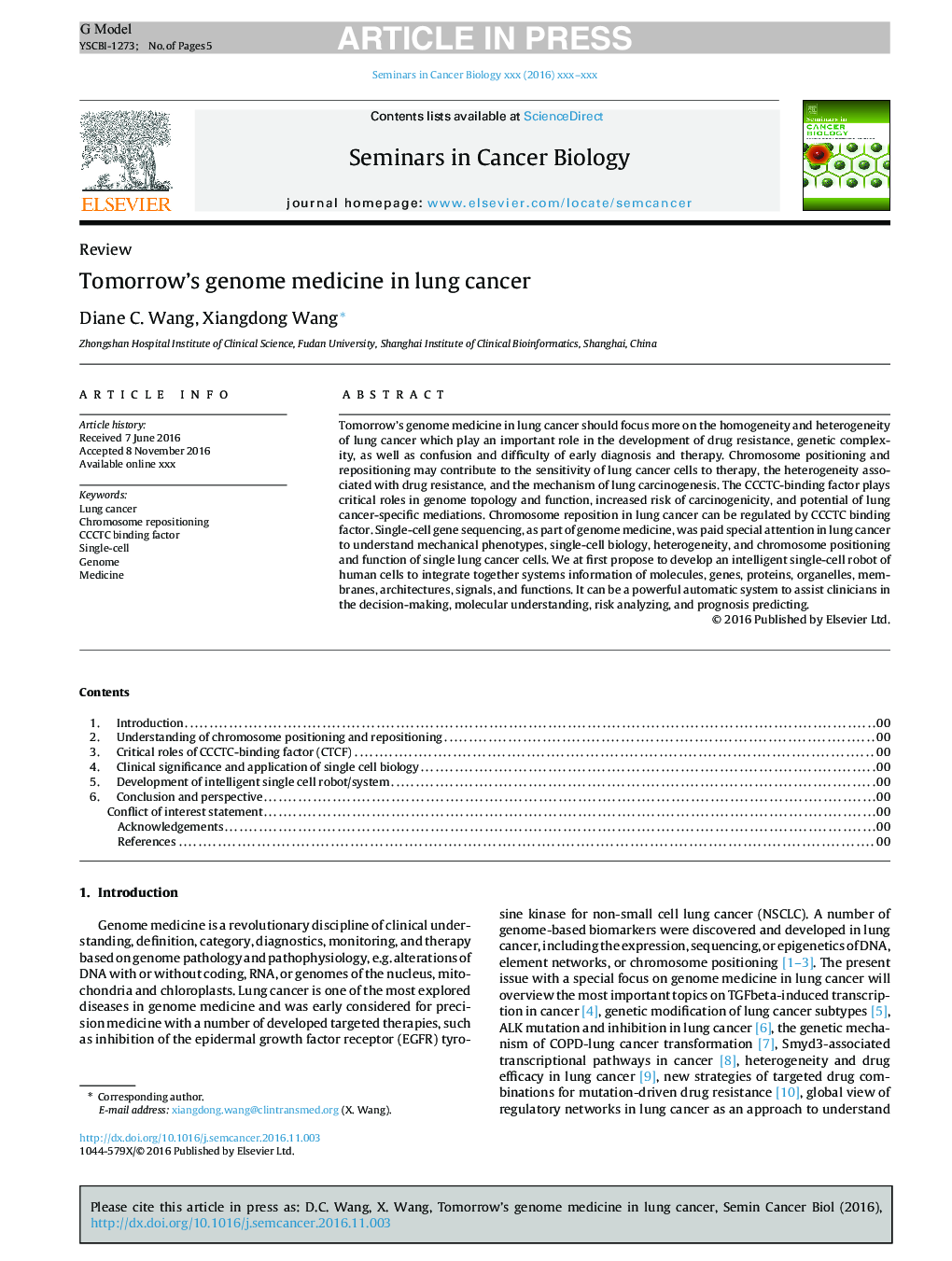| Article ID | Journal | Published Year | Pages | File Type |
|---|---|---|---|---|
| 8361966 | Seminars in Cancer Biology | 2017 | 5 Pages |
Abstract
Tomorrow's genome medicine in lung cancer should focus more on the homogeneity and heterogeneity of lung cancer which play an important role in the development of drug resistance, genetic complexity, as well as confusion and difficulty of early diagnosis and therapy. Chromosome positioning and repositioning may contribute to the sensitivity of lung cancer cells to therapy, the heterogeneity associated with drug resistance, and the mechanism of lung carcinogenesis. The CCCTC-binding factor plays critical roles in genome topology and function, increased risk of carcinogenicity, and potential of lung cancer-specific mediations. Chromosome reposition in lung cancer can be regulated by CCCTC binding factor. Single-cell gene sequencing, as part of genome medicine, was paid special attention in lung cancer to understand mechanical phenotypes, single-cell biology, heterogeneity, and chromosome positioning and function of single lung cancer cells. We at first propose to develop an intelligent single-cell robot of human cells to integrate together systems information of molecules, genes, proteins, organelles, membranes, architectures, signals, and functions. It can be a powerful automatic system to assist clinicians in the decision-making, molecular understanding, risk analyzing, and prognosis predicting.
Related Topics
Life Sciences
Biochemistry, Genetics and Molecular Biology
Biochemistry
Authors
Diane C. Wang, Xiangdong Wang,
